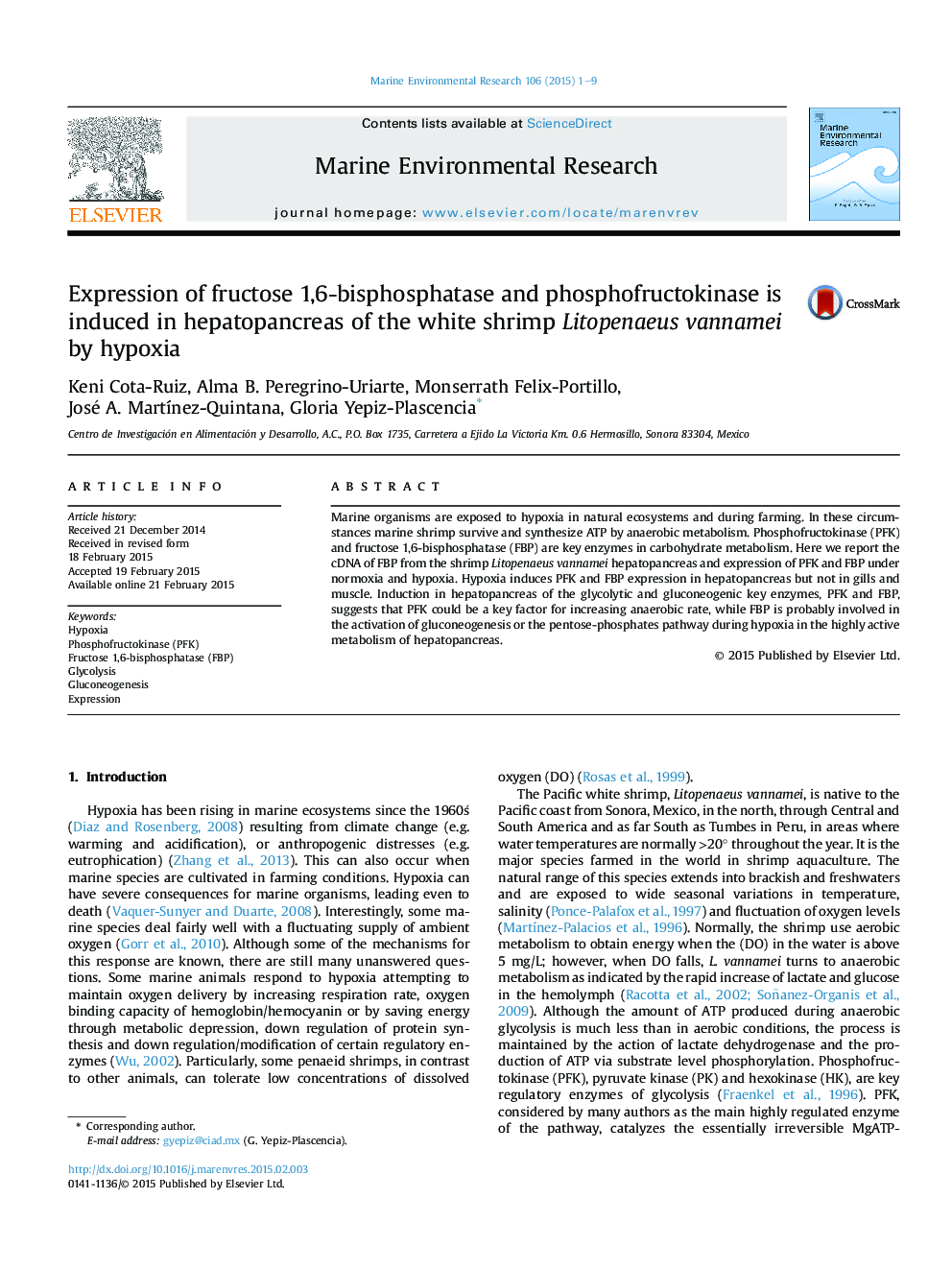| Article ID | Journal | Published Year | Pages | File Type |
|---|---|---|---|---|
| 6387695 | Marine Environmental Research | 2015 | 9 Pages |
Abstract
Marine organisms are exposed to hypoxia in natural ecosystems and during farming. In these circumstances marine shrimp survive and synthesize ATP by anaerobic metabolism. Phosphofructokinase (PFK) and fructose 1,6-bisphosphatase (FBP) are key enzymes in carbohydrate metabolism. Here we report the cDNA of FBP from the shrimp Litopenaeus vannamei hepatopancreas and expression of PFK and FBP under normoxia and hypoxia. Hypoxia induces PFK and FBP expression in hepatopancreas but not in gills and muscle. Induction in hepatopancreas of the glycolytic and gluconeogenic key enzymes, PFK and FBP, suggests that PFK could be a key factor for increasing anaerobic rate, while FBP is probably involved in the activation of gluconeogenesis or the pentose-phosphates pathway during hypoxia in the highly active metabolism of hepatopancreas.
Related Topics
Physical Sciences and Engineering
Earth and Planetary Sciences
Oceanography
Authors
Keni Cota-Ruiz, Alma B. Peregrino-Uriarte, Monserrath Felix-Portillo, José A. MartÃnez-Quintana, Gloria Yepiz-Plascencia,
